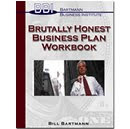Buying an existing business requires asking the right questions and knowing what you need to know about the business. There are advantages and disadvantages of buying an existing business versus starting a new business.
Advantages: When you buy an existing business, you get a proven track record, a business in existence, one with a history, a product or service that has already been tested and marketed, a trained staff of employees and policies and procedures that are already in place. Buying an existing business reduces the uncertainty of customer demand as a customer base has been established. Another time and money saver is the fact that furniture, fixtures and equipment is in pace; someone has already performed the tasks involved in establishing the business.
Buying an existing business over building a business from scratch has its advantages; you already have a marketing plan in place, policies and procedures have already been established. You get to enjoy the advantage of reduced start-up work and less risk of failure if there is no market demand for your product of services. Building a customer base is one of the largest challenges a newly established business faces.
Disadvantages: There are possible pitfalls to buying an existing business. One of the biggest ones to consider is the risk of suffering from misrepresentation; it is not always in the best interest of the seller to tell you if something is going wrong. This information is very crucial to the purchaser. Remember that people who are selling a business are involved in one of the largest transactions they will be involved in during the course of their life.
When you buy an existing business, you are paying a price based on the value of the entire package, as shown on their financial statements. They could have obsolete inventory on their books that indicates a value of what it was worth back when they acquired it.
Though having a trained staff in place is listed as an advantage, it can also work against you. What is attitude of the existing employees? How do they feel about suddenly being under the direction of a new boss? How will they feel about changes you may want to make, especially if specific businesses practices are outdated? Will employees continue to be as productive when you take over? If not, then your revenues can decrease significantly.
Whether you choose to buy an existing business or create a new business, remember to do the necessary research and to educate yourself. Remember, this will be one of the largest financial transactions that you will be involved in; consider hiring a professional, a CPA, attorney or business consultant to analyze the business and the transaction. This could save you a lot of money in the long run.
Bill Bartmann has started 7 businesses in 7 industries. Through his business experiences he has learned a lot; Bill Bartmann shares everything he knows about business ownership and success with his online course, Billionaire Business Systems.
Tuesday, March 17, 2009
Bill Bartmann Business Tips: What Business Should Your Be In?
Are you happy with the business you are in? Do you feel that you are making a difference? Do you enjoy what you are doing? If not, then you are probably not doing what you should be doing. There is a specific reason most people go into business for themselves; and, surprisingly, it is the reason most businesses fail.
You get to pick the business you want; however, do not go into a business because you think you can make a lot of money. If you get into business for the sole purpose to make a lot of money, you are sure to fail.
Do not make the mistake of choosing something just because you look around you and see others succeeding. Pick something you’re good at; something you have enough knowledge and skills to be effective in, something you have a passion for.
Those who succeed in certain business industries have the skills, aptitude, and attributes required to be suitable for their industry; they have a desire to make a difference in a specific area of business.
Your business should be something you enjoy; not just work, creating stress and anxiety. You have your own unique talents, skills and things you’re good at. Those who succeed in business have the knowledge and skills to be qualified for the industry they choose to go into.
Ask yourself:
What are you good at?
What do you know?
What do like to do?
Do you have a passion about changing how things are done in a specific industry?
How can you make money doing what you like and what you are good at?
Do you have a “new niche” market idea or will you choose something you’ve already seen done? There are no set rules; there are thousands of businesses available; all are making money; some more than others. Look at the types of businesses that exist in your area. Realize that 99.9% of entrepreneurs will start something someone else has already done at least once.
Consider your options, educate yourself, brush up on your skills and update yourself on the mechanics of the industry you choose to go into when you start your own business. Know your passion as you focus on the purpose served by the products and services you are offering. Look at the consumer demand and consider the competition in providing the supply to your market area. Go into business for the right reasons and do what you know is right and the money will follow.
Bill Bartmann made a fortune in the debt collections business, but he did not base his choice of business to go into on how much money he would make. Bill Bartmann had a passion to make a change in the industry; his desire was to alter the intimidating techniques used in debt collecting. Through his experiences over 40 years of his business successes and failures, Bill Bartmann has learned from life’s greatest lessons.
You get to pick the business you want; however, do not go into a business because you think you can make a lot of money. If you get into business for the sole purpose to make a lot of money, you are sure to fail.
Do not make the mistake of choosing something just because you look around you and see others succeeding. Pick something you’re good at; something you have enough knowledge and skills to be effective in, something you have a passion for.
Those who succeed in certain business industries have the skills, aptitude, and attributes required to be suitable for their industry; they have a desire to make a difference in a specific area of business.
Your business should be something you enjoy; not just work, creating stress and anxiety. You have your own unique talents, skills and things you’re good at. Those who succeed in business have the knowledge and skills to be qualified for the industry they choose to go into.
Ask yourself:
What are you good at?
What do you know?
What do like to do?
Do you have a passion about changing how things are done in a specific industry?
How can you make money doing what you like and what you are good at?
Do you have a “new niche” market idea or will you choose something you’ve already seen done? There are no set rules; there are thousands of businesses available; all are making money; some more than others. Look at the types of businesses that exist in your area. Realize that 99.9% of entrepreneurs will start something someone else has already done at least once.
Consider your options, educate yourself, brush up on your skills and update yourself on the mechanics of the industry you choose to go into when you start your own business. Know your passion as you focus on the purpose served by the products and services you are offering. Look at the consumer demand and consider the competition in providing the supply to your market area. Go into business for the right reasons and do what you know is right and the money will follow.
Bill Bartmann made a fortune in the debt collections business, but he did not base his choice of business to go into on how much money he would make. Bill Bartmann had a passion to make a change in the industry; his desire was to alter the intimidating techniques used in debt collecting. Through his experiences over 40 years of his business successes and failures, Bill Bartmann has learned from life’s greatest lessons.
Subscribe to:
Posts (Atom)






















